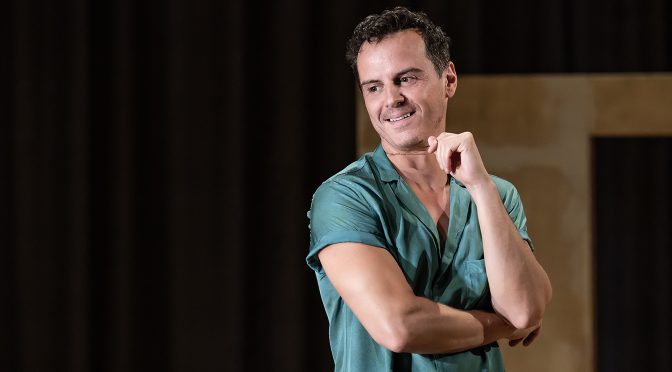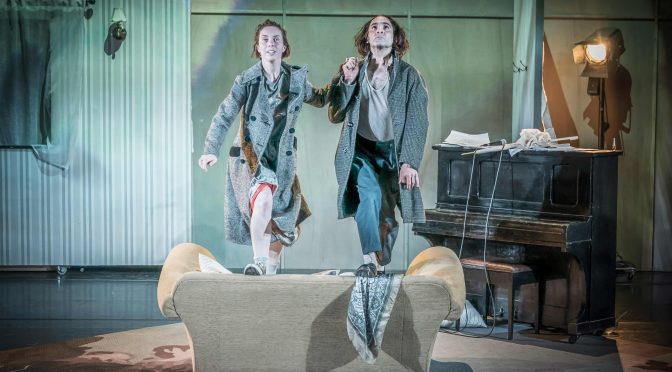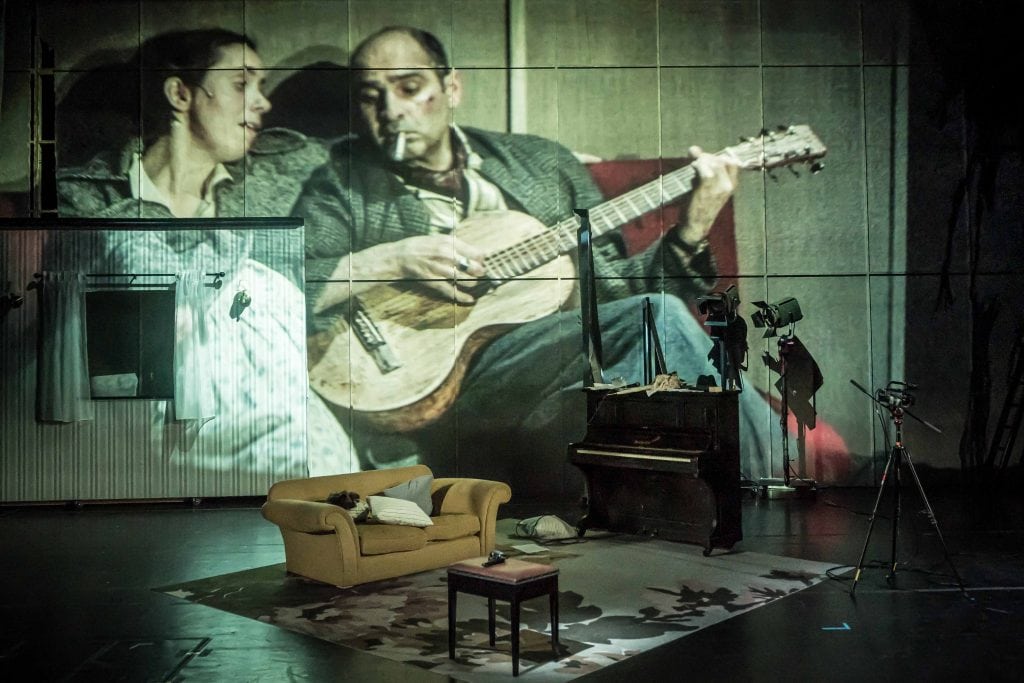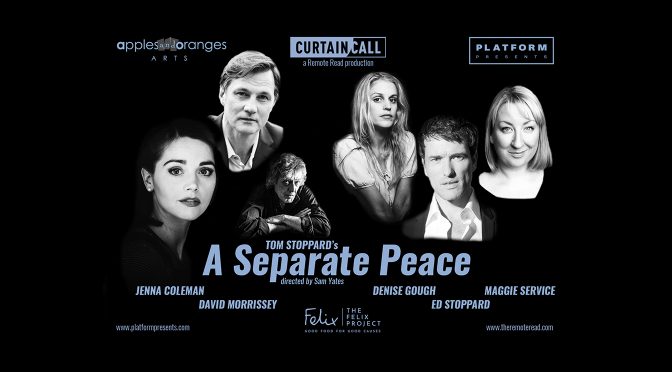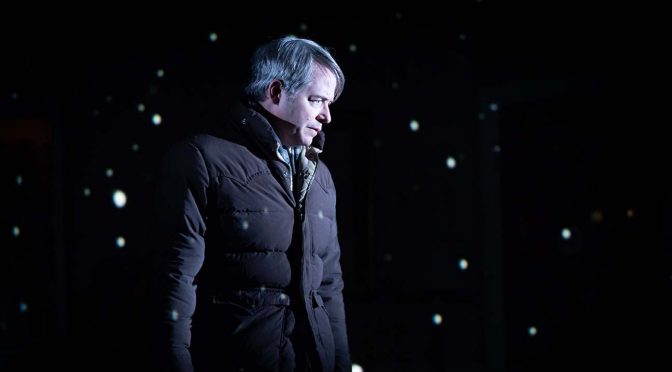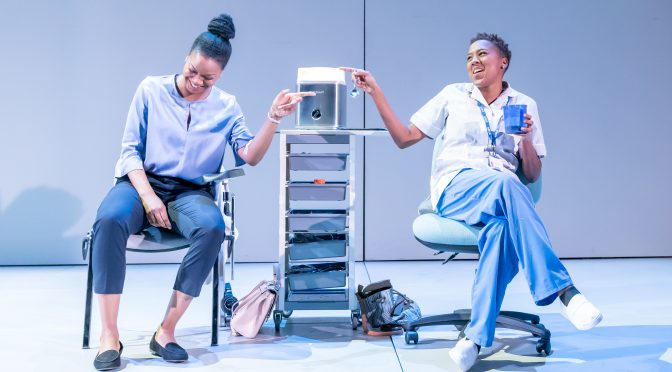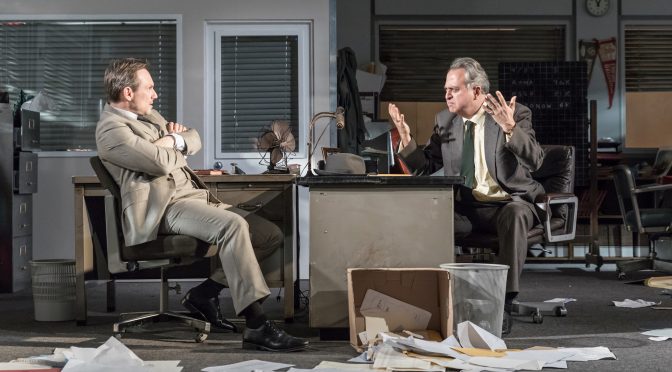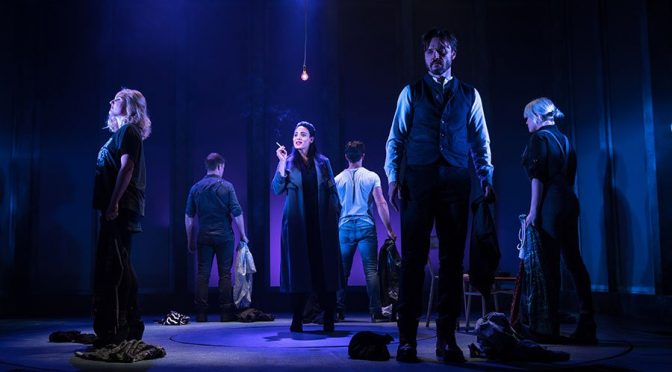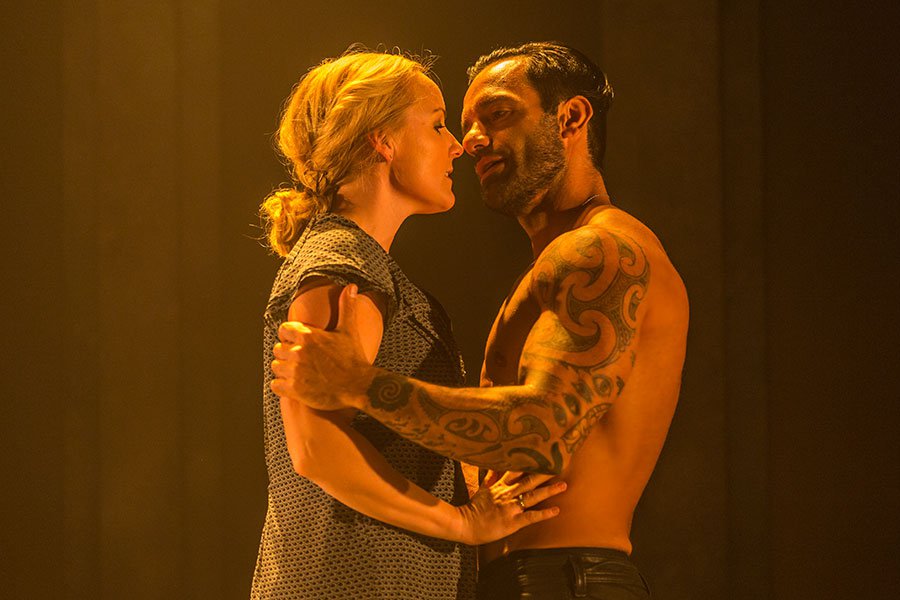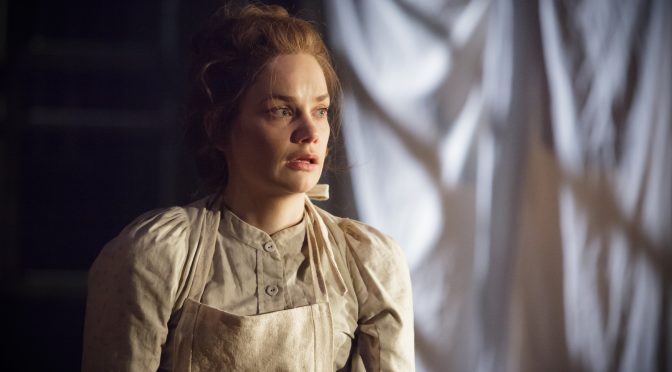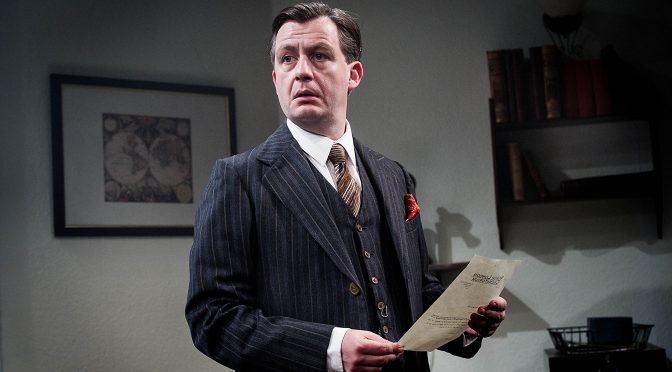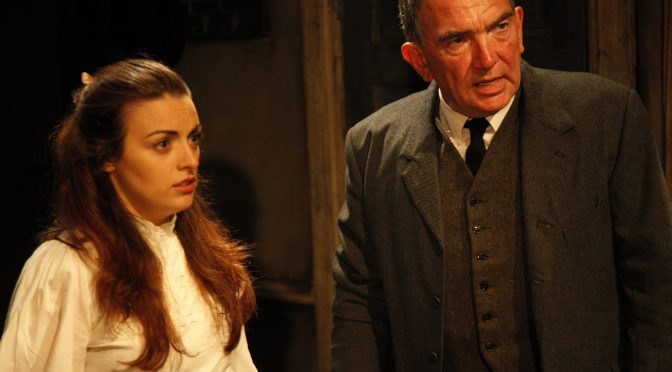The idea behind this new work, described as ‘after’ Chekhov’s masterpiece, is to have one performer take all the roles. If your first response is to ask why, trust me, there is a point. An important point. Vanya simultaneously distils and expands its source material: showing the original as never before, while exposing the power of creativity itself in a way that is inspirational. This show is magical.
Director Sam Yates, designer Rosanna Vize, playwright Simon Stephens and the solo performer, Andrew Scott, are credited as co-creators. And what they have created is very special indeed. The project might seem foolhardy, that it works so well is a continual delight. Vanya is funny – the limitations of having one performer are playfully acknowledged. But – quickly – we start to really see all the characters; each role becomes fully – literally – realised.
Yates, a versatile director, is clearly hard to intimidate; he paces the production, close to two hours with no interval, gracefully. There’s nothing showy, no distractions, and he has the confidence to let us enjoy the text and the star. Vize’s design cleverly combines theatricality, there are grand curtains and plywood, with the domestic. There is a playful balance of artifice and the everyday.
Stephens is a bold writer of ferocious intelligence. It certainly helps to know Uncle Vanya, but pointers as to what is going on come with skill as well as providing jokes. Importantly, humour runs through the script and scenario too so that Chekhov’s comedy becomes clear. There’s a lot of insight into the original; the presence of Anna, Vanya’s deceased sister, is revelatory. Chekhov’s themes of boredom and happiness – with all the dramatic permutations around love, age, and ambition – are vivid and alive.
As for the performer… it must be odd to be as talented as Scott! Expectations might even detract from his achievement, as everyone just knows he’ll be great. But swapping roles of such different ages and genders so brilliantly, for such an extended duration, is breath-taking.
Technically, distinguishing each character by carefully using small props or gestures is fascinating. But Scott makes the show uncannily emotional (he always expresses vulnerability marvellously). There are a lot of unhappy people here and you feel for them all in turn. Even the intellectual Serebryakov, usually so unsympathetic and recast a pretentious film director, is heart-wrenching. And Scott is a stong comedian, the cackles he gets from talking about cartography show this. All amazing, but when it comes to scenes of physical intimacy between the characters… what to do? Scott subtly wrestles with himself. Stroking or grabbing a hand, or pushing himself against a wall. Somehow, and I cannot explain it – the show is sexy. And, I can’t help repeat myself, such moments in the theatre are magical.
The idea of art that, like Serebryakov’s films, “defines”, is mocked by Vanya. The character makes his point forcefully. But this is theatre that will be remembered and talked about for a long time. The only problem is running out of superlatives to describe it.
Until 21 October 2023
Photo by Marc Brenner

